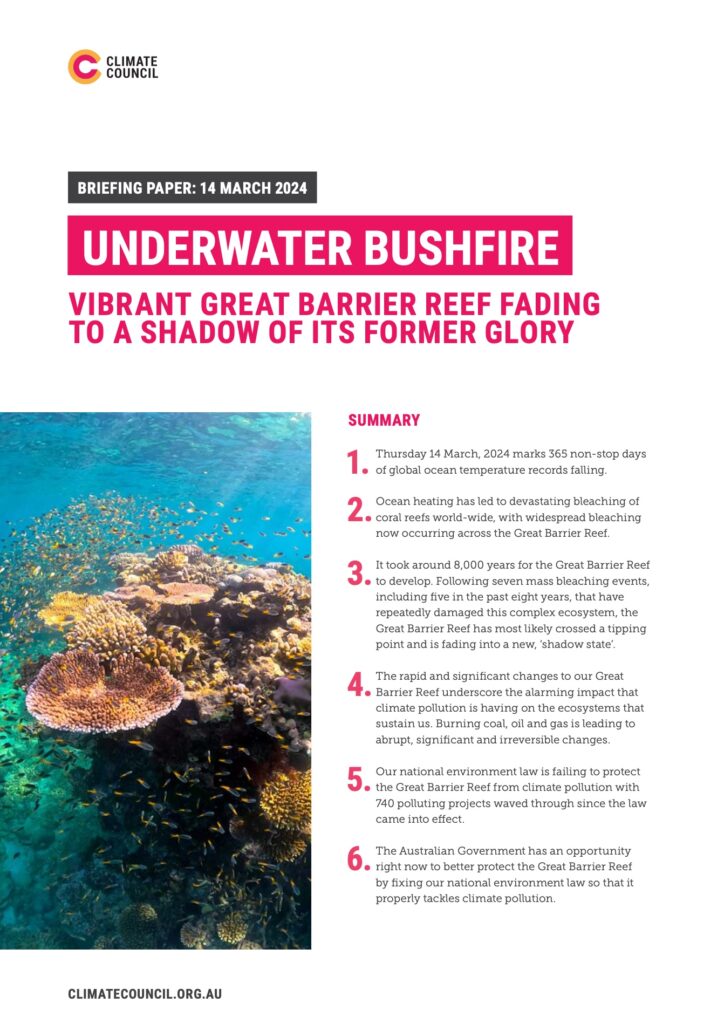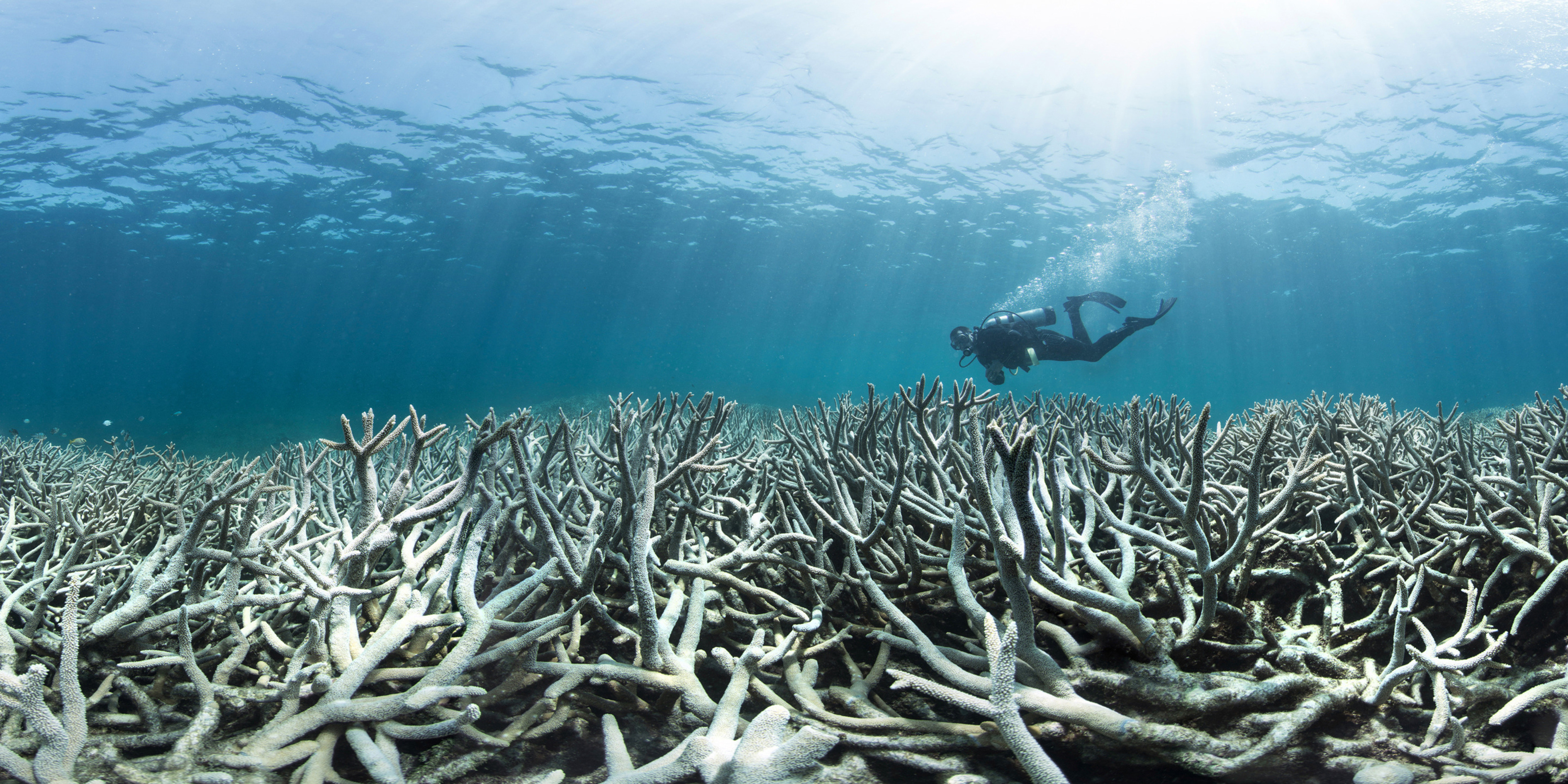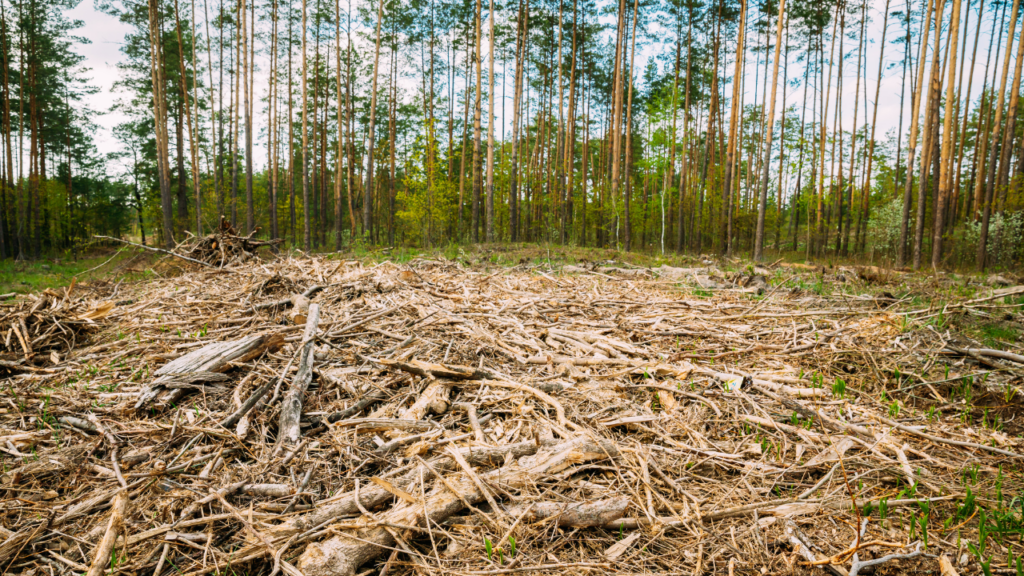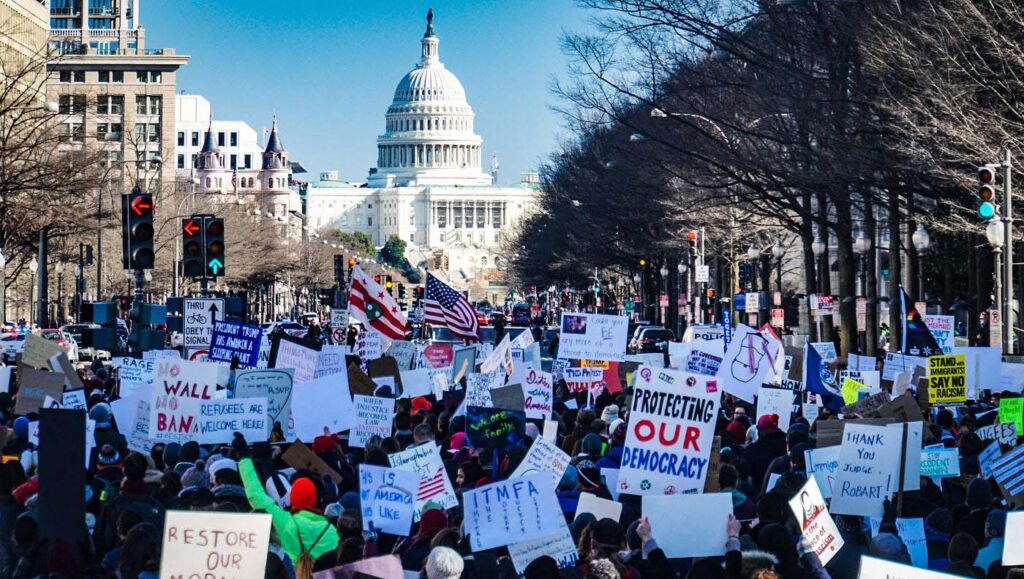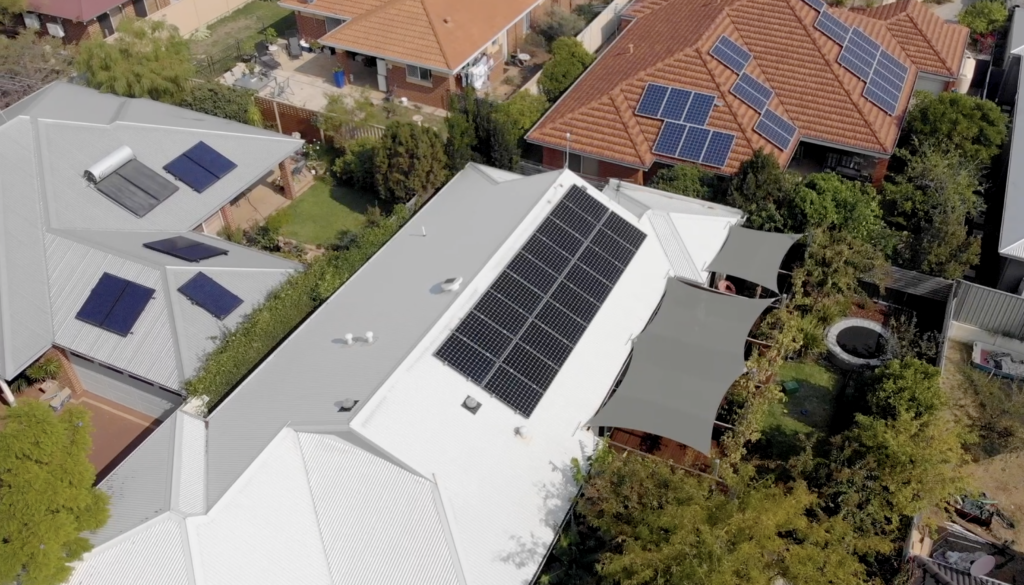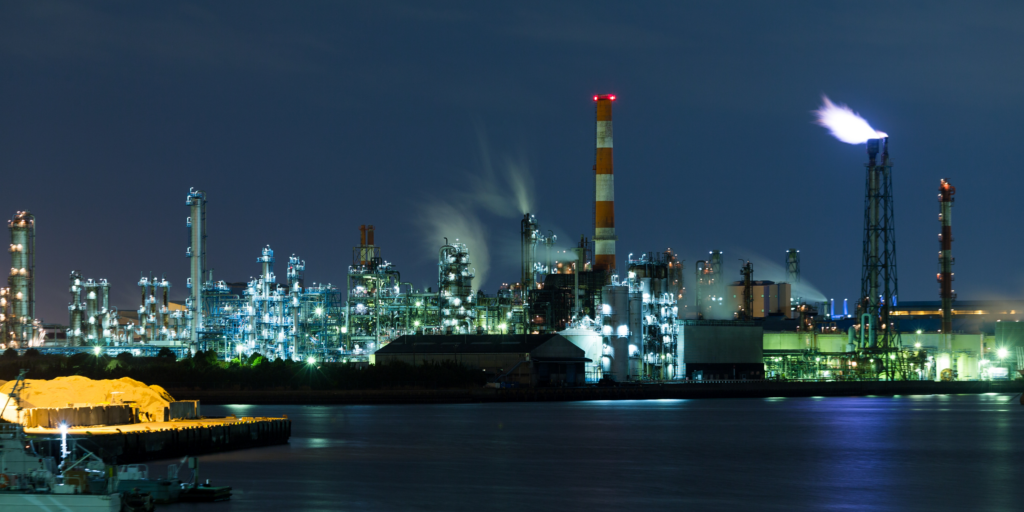The Great Barrier Reef is a source of wonder, vibrant life and, for many Australians, part of our national identity. But the health and vibrancy that led to Earth’s largest living structure being dubbed one of the seven natural wonders of the world is fading, as the ocean around it heats up due to climate pollution.
Another mass bleaching event – likened to an underwater bushfire due to the destruction it wreaks – is underway. Heat-trapping pollution from coal, oil and gas is responsible, with all seven mass bleaching events on the Reef recorded since 1998. This is part of a devastating wave of bleaching events striking coral reefs worldwide, with an alarming outlook for reefs across the Pacific over coming weeks.
Our ocean sits at the heart of the climate change story. More than 90 percent of the excess heat stored in our climate system due to climate pollution has been absorbed by the ocean and this is driving an extraordinary rise in sea surface temperatures.
2023 saw ocean surface temperature records smashed as extreme marine heatwaves engulfed the eastern tropical Pacific and northern Atlantic. The unrelenting rise in sea surface temperature continued into 2024, with Thursday 14 March marking 365 consecutive days on which a new global average sea surface temperature record was set for that day of the year.
The deterioration of our Great Barrier Reef is a clear demonstration of our rapidly unfolding climate crisis. It’s now likely we are crossing a tipping point for tropical coral reefs worldwide, including this irreplaceable ecosystem. This has significant consequences for our wellbeing, coastal communities that rely on reefs for their livelihood and potential knock-on effects for biodiversity and climate that we are only beginning to understand.
The abrupt changes underway on the Great Barrier Reef portend even greater dangers, and the possibility of crossing points of no return in our climate system. Cutting climate pollution further and faster from coal, oil and gas is the only answer.
Right now, the Australian Government can take a crucial and long overdue step to give the Great Barrier Reef its best chance of survival by fixing our outdated national environment law – the Environment Protection and Biodiversity Conservation (EPBC) Act. While this law is meant to protect the Reef and other precious, natural places, it has a massive blindspot when it comes to the number one threat facing coral reefs worldwide – climate change.
This briefing paper provides an update of what’s unfolding on our Great Barrier Reef, situates this event in the broader context of ongoing change to our climate and oceans, and explains how we can do more today to better protect the Great Barrier Reef as well as everyone and everything that depends on it.
